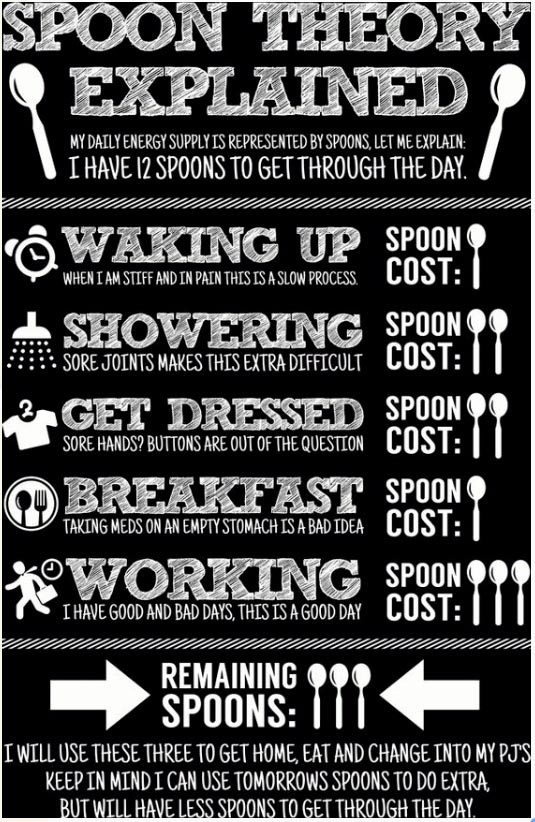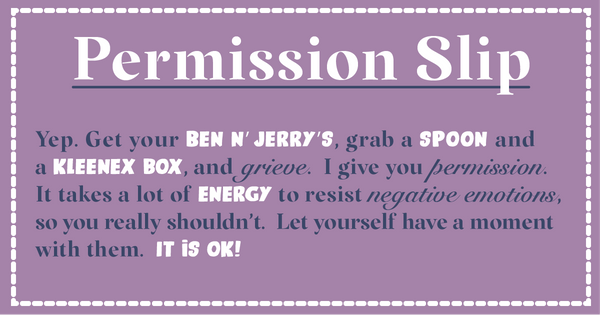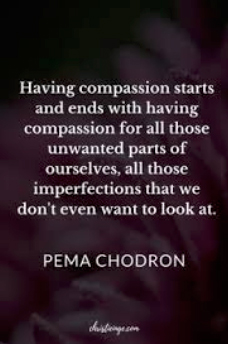Depression: Part II
Back in August, I wrote a blog post about depression and how I’ve been dealing with The Overwhelm (TM) of the current world situation.
This post is a bit of a followup to that post, and I go a bit more in depth into some of the other coping mechanisms and mentalities that have been helping me keep moving forward.
By this point in the pandemic, most everyone is feeling Depression in one way or another.
I’m not prone to depression, but it’s even getting to me.
This is ok.
The world is A Lot right now. As someone with health issues, myself and a lot of people like me are being pummeled in the face with the idea that society and people as a whole doesn’t actually give a fuck about me/us.
(Side note – if you don’t deal with chronic health problems and your response to that statement is ‘Oh come on, that’s not true! Don’t be so dramatic!’ Maybe it’s time to reconsider why that’s your initial reaction to that statement.)
For me, it’s not being alone. I like being by myself. It’s the constant stress that comes with doing simple everyday things, and the anxiety that comes along with simple interactions.
Going out for coffee with a friend to talk about it is extremely complicated right now. It brings additional stress and anxiety with it that at times make it not worth the hassle.
As a result, except for a select few, most of my interactions with friends happen outside. If I go through an extensive interrogation and risk assessment regarding their most recent social activities, I can add a few more. But in a few weeks, that’s not going to be an option.
This is exhausting. If you generally start the day with fewer spoons than most, this type of mental work takes up a lot of spoons that you’d normally have available.
It’s also very isolating. As someone who isn’t prone to feeling loneliness, I’m feelin’ it – as I’m sure many others are as well.
And ya’ll – this is only going to intensify as the weather shifts, days become shorter, and if we’re being real, as we get closer to the election.
As hard as it is, you have to find ways that help you at least lessen the effects.
I don’t have all the answers. But I will be open and tell you about some of the things that work for me.

In case you haven’t heard of Spoon Theory, here’s the basics.

1. Sometimes you just gotta lie on the couch and cry.
Yep. Get your Ben n’ Jerry’s, grab a spoon and a Kleenex box, and grieve. I give you permission. It takes a lot of energy to resist negative emotions, so you really shouldn’t. Let yourself have a moment with them.
2. Is there something you can focus on that will help you take care of yourself?
For example. For me, it’s powerlifting. Since I don’t have a full gym of equipment available to me, I’ve stripped down my lifting routine to be pretty basic. This suits a powerlifting regiment very nicely.
However, in order to be successful at powerlifting, you gotta eat. You gotta eat a lot, in fact.
For me, depression makes it so I *don’t* want to eat. It makes it so that food tastes bad, even if it’s actually delicious.
There’s been a lot of times I’ve been prone to skipping meals because I didn’t feel like eating, but then told myself that if I wanted to stay healthy enough to keep lifting, I had to eat.
So I simplified it. If I wanted to do xxx, I had to do yyy. Focusing on that one thing simplifies my brainspace and creates a simple IF/THEN statement in regards to this area of self care.
I really recommend it if you have something like that available to you. If you need ideas, the newsletter that Worldbuilders sends out weekly includes some of the coping mechanisms and things that have helped our staff. You can sign up here if you want.
3. Maybe don’t engage all the time.
Do you generally have complex discussions with friends about difficult things? That’s really great, but maybe right now, or for a while, you shouldn’t. Those types of conversations are great, but can be draining or triggering if you’re already on edge.
Maybe have them less, or for shorter periods of time. Be wise about how you engage (particularly on the internet because boy howdy it sure is just a dumpster fire of the worst of humanity).
And especially with toxic people. I give you permission to walk away with no explanation needed. You don’t owe anyone anything, especially if they feel or act entitled to your personal resources and energy stores.
4. Accept that you’re not going to be as productive as you usually are.
I’ve heard a lot of my friends say that they can’t find the ambition to do xyz things they’d normally do.

That’s totally legit.
Try not to beat yourself up about it. Right now you’re using more mental energy just dealing with The World that you don’t have as much left for dealing with other things you’d normally handle easily.
As someone who has been in extremely emotionally abusive relationships in the past and is also living through the Current World Situation, the effects they have on you as an individual are *extremely* similar. Just dealing with every new thing that comes at you is going to take a lot of energy you’d normally use for other things.
This is ok. Celebrate the little progress you do make instead of beating yourself up about the things that didn’t get done.
4b. ^^This does not reflect on you as a person.
Your value as a person is not tied to your productivity. Not getting done everything you wanted to in a day doesn’t mean that you have failed. It means you tried and are struggling a lot right now, and you need to try and manage your expectations based on that.
5. The fatigue is real.
You’re not tired because you’re lazy. You’re tired because you’re mentally and emotionally exhausted.
If we want to start treating mental illness the same as we do other illnesses, it starts with recognizing it within ourselves and treating it like a real illness even for ourselves, and granting ourselves the grace we need to deal with it.
6. Not all days have to be good.
Toxic Positivity is the actual worst. It’s created this idea that every day needs to be a Good Day. As a result, when we have bad days, we think that we’ve failed or just didn’t try hard enough. In turn, this makes us feel even worse.
Fuck all that. That’s some Grade A Bullshit.
Some days are just going to be absolute shit. This doesn’t mean that you failed at life. It just means that today was absolute shit.
I’m not even gonna say ‘believe that tomorrow is gonna be better!’ because fuck that. That creates pressure to ‘fix’ a tomorrow that hasn’t even happened yet. Tomorrow might even be shit too, who knows!
But one thing I do know is that ‘Think positively!’ slogans can be shoved somewhere the sun don’t shine. The culture they create around having A Good Day as the default is genuinely harmful and I’m really over it.
7. Not everyone gonna have energy for you.
Normally this is the part where some generic blog post says something trite like ‘reach out to people!’
This is actually good and sound advice, and you should do it.
BUT.
When you do, understand that other people may not have energy for that right now.
This doesn’t mean they don’t love you or care about you, it just means that the little spoons they have must be designated to other places today.
Before you unload on someone, ask them first if they have the capacity for it. If they don’t – that’s ok. This isn’t necessarily a reflection on how they feel about you.
7b. ^^You’re also not responsible for taking care of anyone else.
As a followup to the above point, you’re not a bad friend if you tell someone you don’t have the capacity for them right now.
And how they feel about that isn’t your problem.
There. I said it.
Don’t be needlessly cruel, because that never helps. Be kind, but firm in your boundaries. If this causes a problem for someone else, it’s time to consider how much that particular person was benefiting before from your lack of boundaries.
And this. Includes. Family. Full stop.
Depression Isn’t Fun.
Unfortunately, it’s also highly stigmatized in our culture. This stigmatization forces people to feel like something is wrong with them or that they’ve failed in some way. And by not talking about it, it only perpetuates the cycle. At Worldbuilders, part of our mission is shining a light on the parts of the world that need help. Sometimes that’s in the form of working with international charities with international focuses.
And sometimes it’s as small as working towards breaking the stigmas around toxic cultural beliefs.
So I’m going to keep talking about it.
What Helps You?
Do you have any particular coping mechanisms or advice? If you want to add to the discussion (as long as it’s relevant, constructive, or amusing), leave it in the comments below!
— Beth T.
